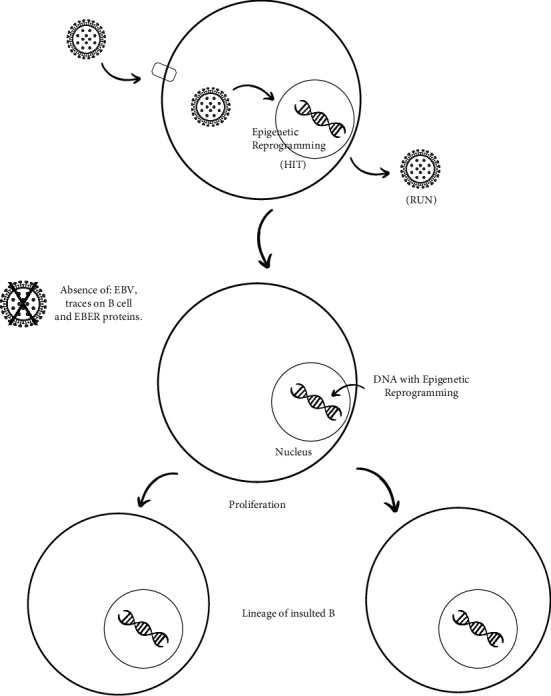Figure 3.

EBV enters the B lymphocyte, causing a series of changes in DNA expression. Following the insult, epigenetic changes and silencing of genes expressing viral antigens occur in the host lymphocyte. Subsequently, EBV disappears completely from the insulted cell, and a process of B-cell proliferation begins in the same cell. In this manner, the daughter cells inherit the DNA reprogrammed by EBV, without the virus being present in the proliferation cycle.
